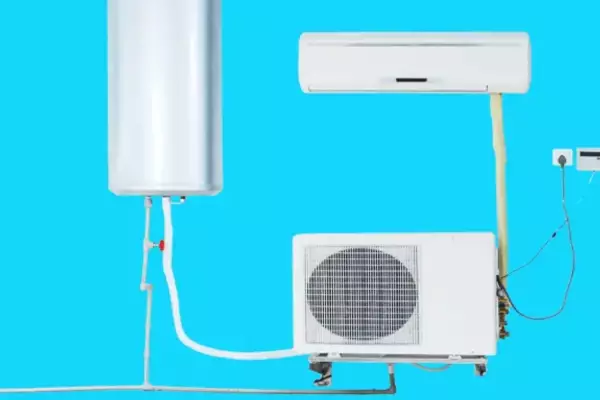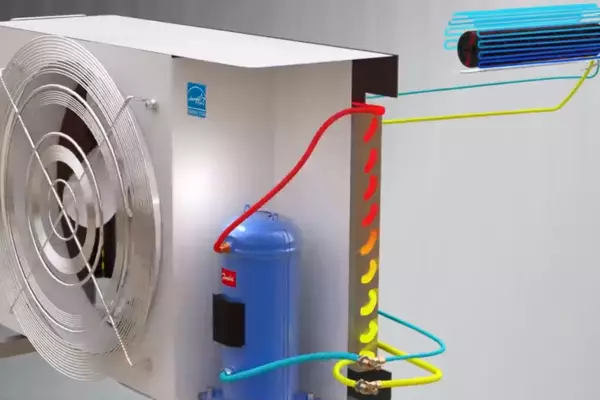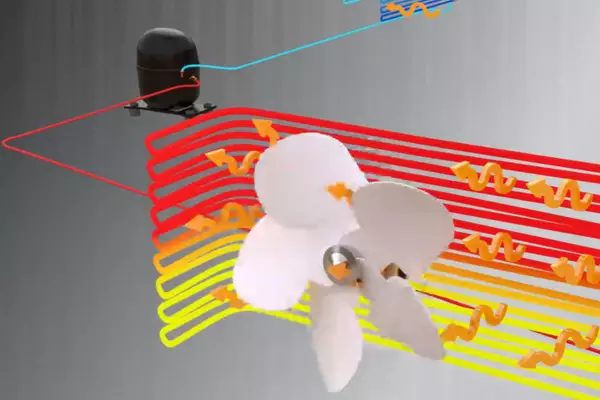In the realm of home comfort, two essential appliances reign supreme: the water heater and the air conditioner. Both are integral components of the Heating, Ventilation, and Air Conditioning (HVAC) systems that form the backbone of our modern lives. However, few people realize the intricate interplay between these appliances and how one can influence the other.
Interestingly, your water heater and air conditioner are more connected than you might think. The central principles of their operation, the shared elements in HVAC systems, and their mutual energy consumption, all make for an interconnected dynamic. This connection can have noticeable impacts on the efficiency, performance, and overall operation of these systems.
Dwelling further into this topic reveals a fascinating correlation between shutting off the water heater and its potential effects on the air conditioner. This nuanced interaction provides crucial insight into the complexity of our HVAC systems and underscores the need for a balanced approach to their operation.
Contents
Water Heater and AC: The Connection
Core Functioning Principles
A water heater is responsible for providing warm water throughout your household, while an air conditioner regulates indoor temperature, particularly in hot weather. Though their functions seem distinct, they operate under shared fundamental principles. Both systems rely on heat transfer – the water heater moves heat to warm the water, and the air conditioner removes heat to cool the room.

Shared Elements in HVAC Systems
It’s not just the theoretical principles that tie these appliances together, but also shared elements within HVAC systems. Many homes utilize combined HVAC systems, where a singular unit serves heating, cooling, and water heating needs. These combined systems further enhance the intertwined relationship between your water heater and air conditioner.
Impact of Water Heater on Air Conditioner
Energy Consumption Factors
One of the most significant impacts of the water heater on the air conditioner is on energy consumption. Heat generated by the water heater can cause the air conditioner to work harder, increasing energy usage and leading to higher utility bills. Therefore, an efficient water heater can contribute to an efficient air conditioner and overall energy savings.
Impact on Indoor Air Quality
Heat and humidity produced by water heaters can affect indoor air quality. This may increase the burden on the air conditioner to maintain a comfortable and healthy indoor environment. Thus, the water heater indirectly affects the air conditioner’s performance in managing indoor air quality.
Temperature Regulation Implications
The heat produced by water heaters, especially tank-type models, can contribute to indoor heat, compelling the air conditioner to work harder to maintain the desired temperature. This scenario might be more prominent in compact homes or apartments where the HVAC appliances share a confined space.
Water Heater Shutdown and Air Conditioner Performance
Understanding the interaction between the water heater and the air conditioner begins with considering the effects of a water heater shutdown.
Potential Impact on AC Efficiency
Shutting down the water heater, especially during the summer months, can have a profound impact on the air conditioner’s efficiency. The absence of the heat generated by the water heater can lower the indoor temperature, reducing the workload on the air conditioner. Consequently, your air conditioner can operate more efficiently, delivering optimal cooling while using less energy.
To elaborate, when the water heater is operational, it produces a certain amount of heat. This heat dissipates into the surroundings, which increases the ambient temperature. The air conditioner, in its role to maintain a comfortable indoor temperature, works harder to counteract this additional heat. Shutting off the water heater removes this heat source, effectively lightening the air conditioner’s load.

Thermal Load Reduction and Energy Savings
By reducing the thermal load on your air conditioner, you might also witness tangible savings on your energy bills. An air conditioner operating under lower thermal load consumes less energy, leading to lower electricity consumption and, therefore, lower utility costs. So, shutting off your water heater in certain circumstances, such as during the peak summer months, could result in substantial energy savings.
However, it’s essential to strike a balance here. A water heater shutdown means the unavailability of hot water. While this might not be an issue during the hot months, it can cause significant discomfort during colder times. Therefore, it’s crucial to weigh the potential energy savings against the comfort and convenience of having readily available hot water.
Coping with Water Heater Shutdown
Adapting to a water heater shutdown involves understanding your specific needs and circumstances. If the weather is hot and the need for hot water is minimal, a temporary water heater shutdown could benefit the air conditioner’s efficiency. However, during colder times, a shutdown might not be the best option due to the necessity of hot water.
Consider alternatives, such as using an instant water heater for smaller needs or scheduling your hot water usage during off-peak hours when the air conditioner’s load is minimal. Another option might be to invest in a heat pump water heater, which works efficiently and can help cool your home, effectively complementing your air conditioner rather than opposing it.

Mitigating Negative Effects
While the interplay between your water heater and air conditioner can present challenges, there are ways to mitigate any negative effects and enhance the efficiency of your HVAC system.
Regular Maintenance Routines
Regular maintenance is critical to ensure the optimal performance of both the water heater and the air conditioner. This includes cleaning, inspection, timely repairs, and necessary component replacements. Here are some maintenance tips for each:
- Water Heater Maintenance: Drain and flush the tank every 6-12 months to remove sediment buildup. Inspect and replace the anode rod as needed. Check for leaks regularly and repair them promptly.
- Air Conditioner Maintenance: Clean or replace filters regularly. Clean the outdoor condenser unit and ensure there is no debris obstructing the airflow. Check the coolant levels and refill if necessary. Get a professional tune-up at least once a year.
Energy-Saving Tips
In addition to regular maintenance, adopting energy-saving practices can enhance your HVAC system’s efficiency. Here are a few energy-saving tips to consider:
- Use Energy-Efficient Appliances: Energy-efficient appliances consume less power while delivering the same performance level. Consider upgrading your older HVAC appliances to energy-efficient models.
- Proper Insulation: Insulating your home can prevent heat loss during winters and keep the cool air in during summers, reducing the workload on your HVAC appliances.
- Smart Usage: Try to use the water heater and air conditioner during off-peak hours. This can reduce the load on the power grid and can often save money if your electricity provider charges lower rates during these times.
- Use a Programmable Thermostat: A programmable thermostat can automatically adjust the temperature based on your schedule, saving energy when you’re not at home.
Frequently Asked Questions
Does the water heater affect the AC’s cooling capacity?
Yes, the heat produced by the water heater can potentially affect the air conditioner’s cooling capacity, making it work harder to maintain the desired indoor temperature. Therefore, an efficient water heater can help the AC function more effectively.
Can shutting off the water heater improve AC efficiency?
Yes, shutting off the water heater, particularly in hot weather, can reduce the indoor heat, thus decreasing the load on the air conditioner and potentially improving its efficiency.
What can I do to mitigate the effects of my water heater on my air conditioner?
Regular maintenance of both appliances, using energy-efficient models, proper insulation, and smart usage can all help mitigate the impact of your water heater on your air conditioner.
Conclusion
Exploring the dynamic between the water heater and the air conditioner uncovers a complex relationship within the realm of HVAC systems. This interplay’s nuances underscore the significance of an informed and balanced approach to managing these integral household appliances.
The potential effects of the water heater on the air conditioner – and vice versa – present both challenges and opportunities. While these effects can impact the efficiency and performance of these systems, proper maintenance and energy-saving measures can go a long way in mitigating any negative implications.
In a world where energy conservation is becoming more critical, understanding these interactions within our HVAC systems is crucial. It helps us make informed decisions about their operation, leading to potential energy savings and enhanced home comfort.

